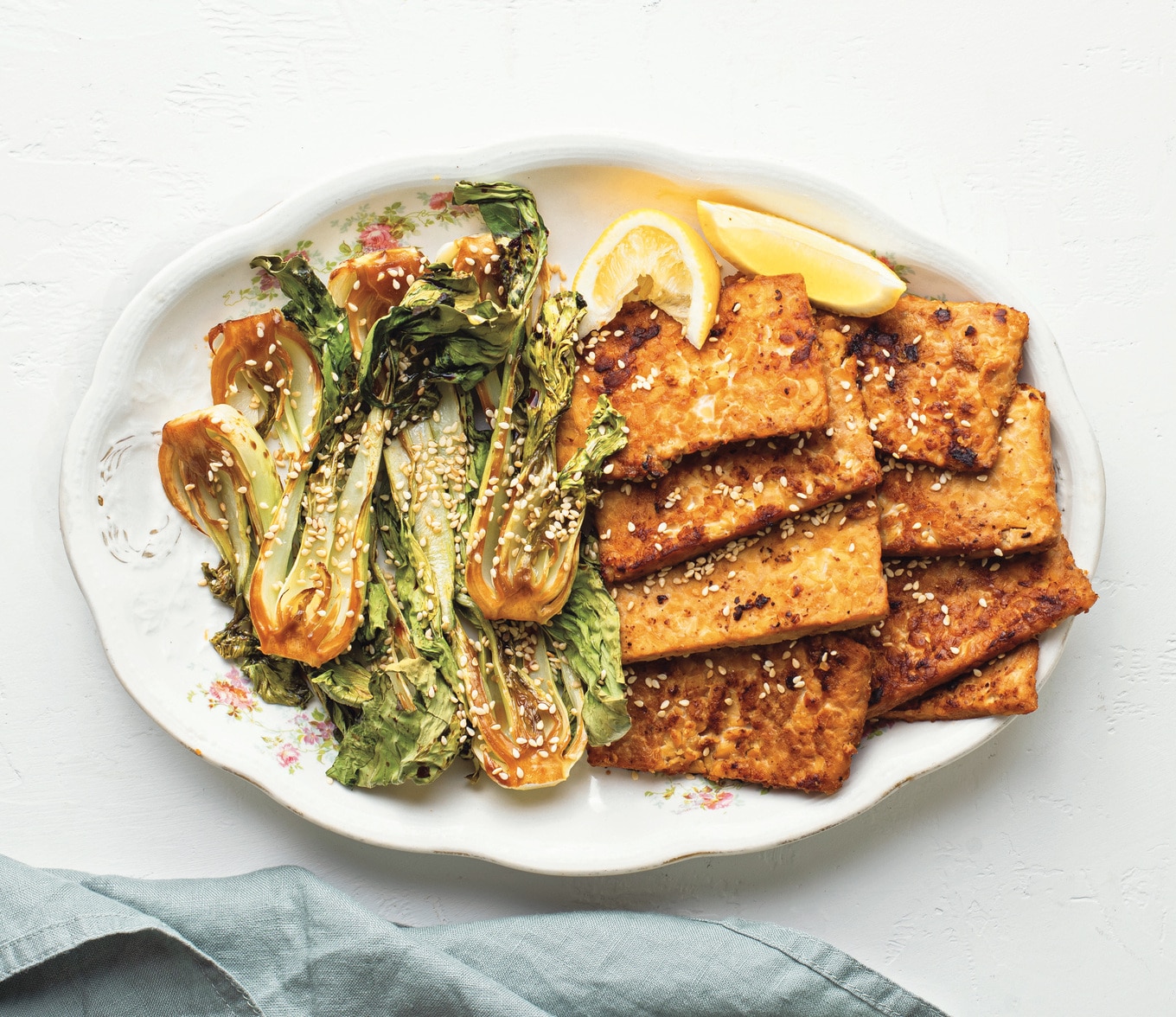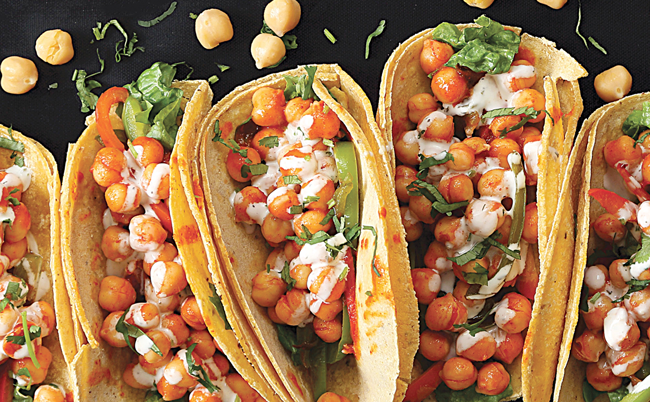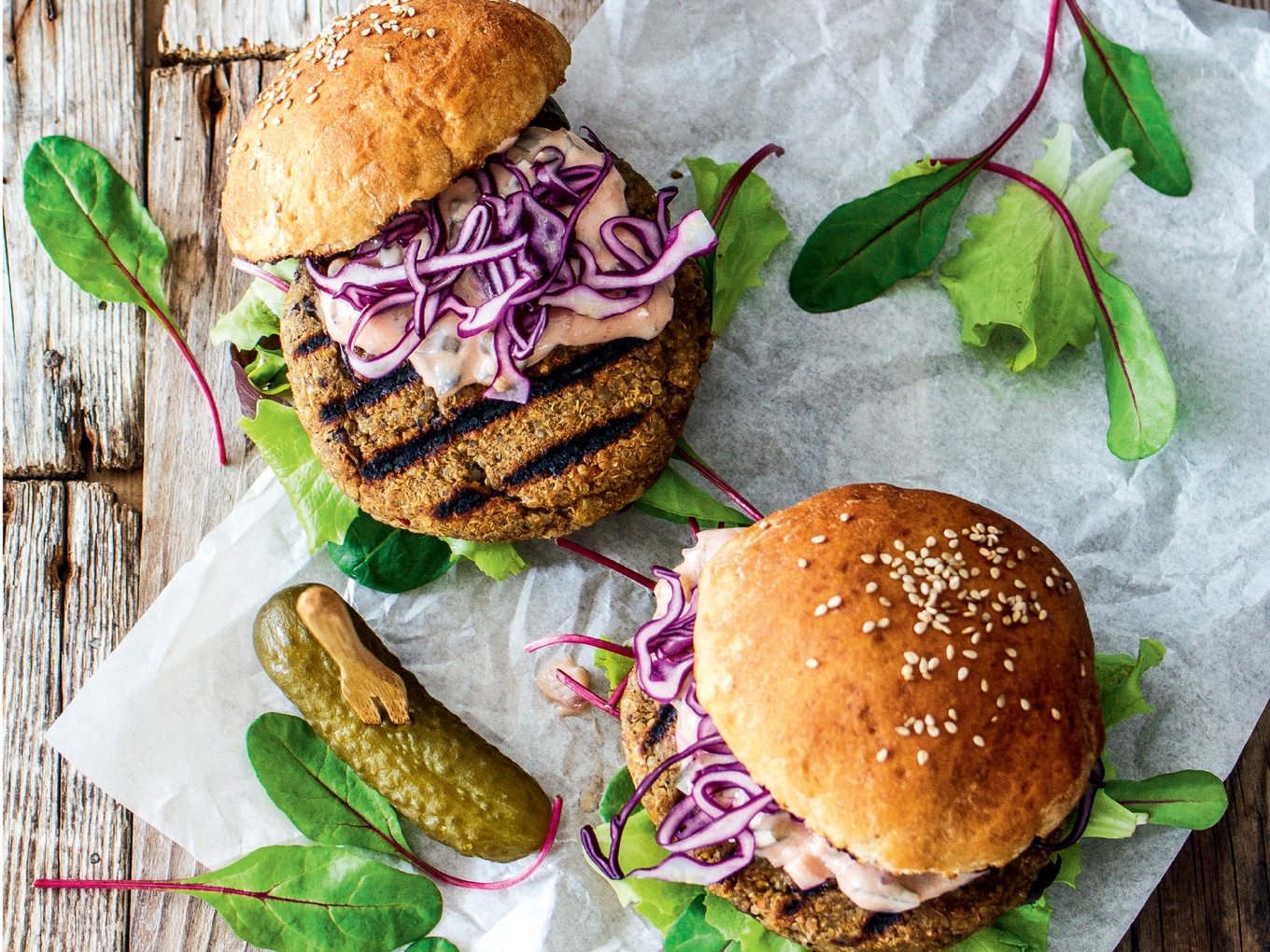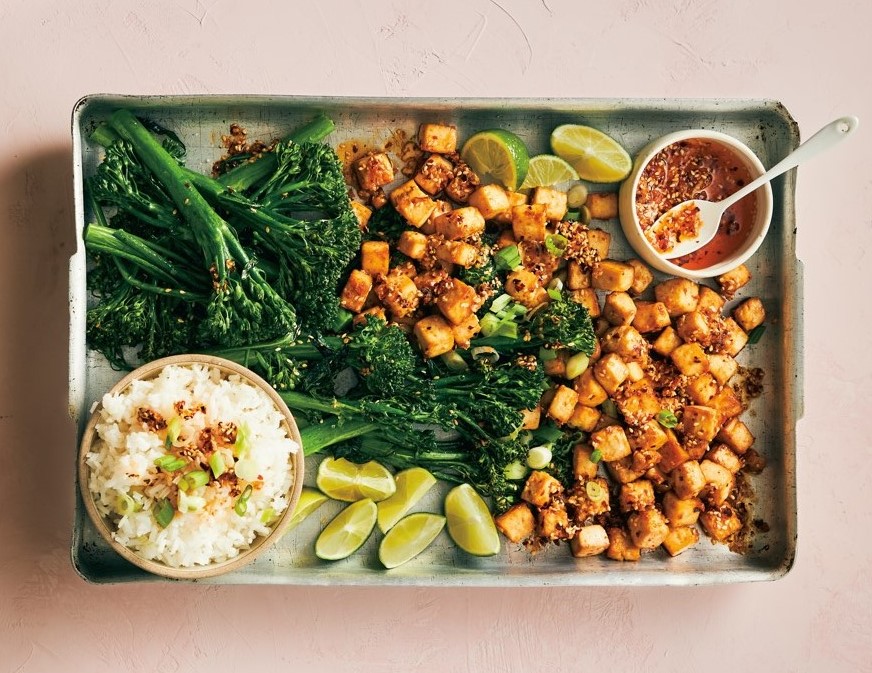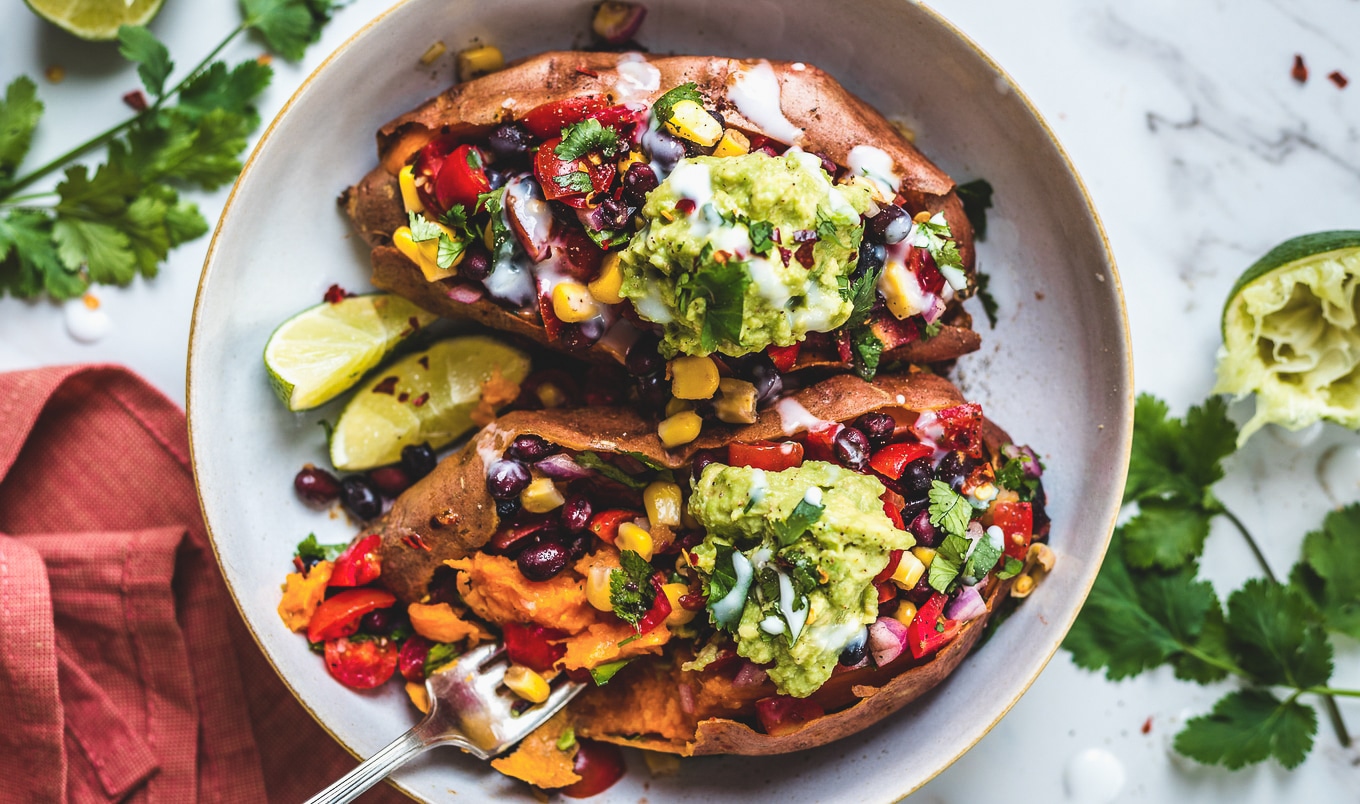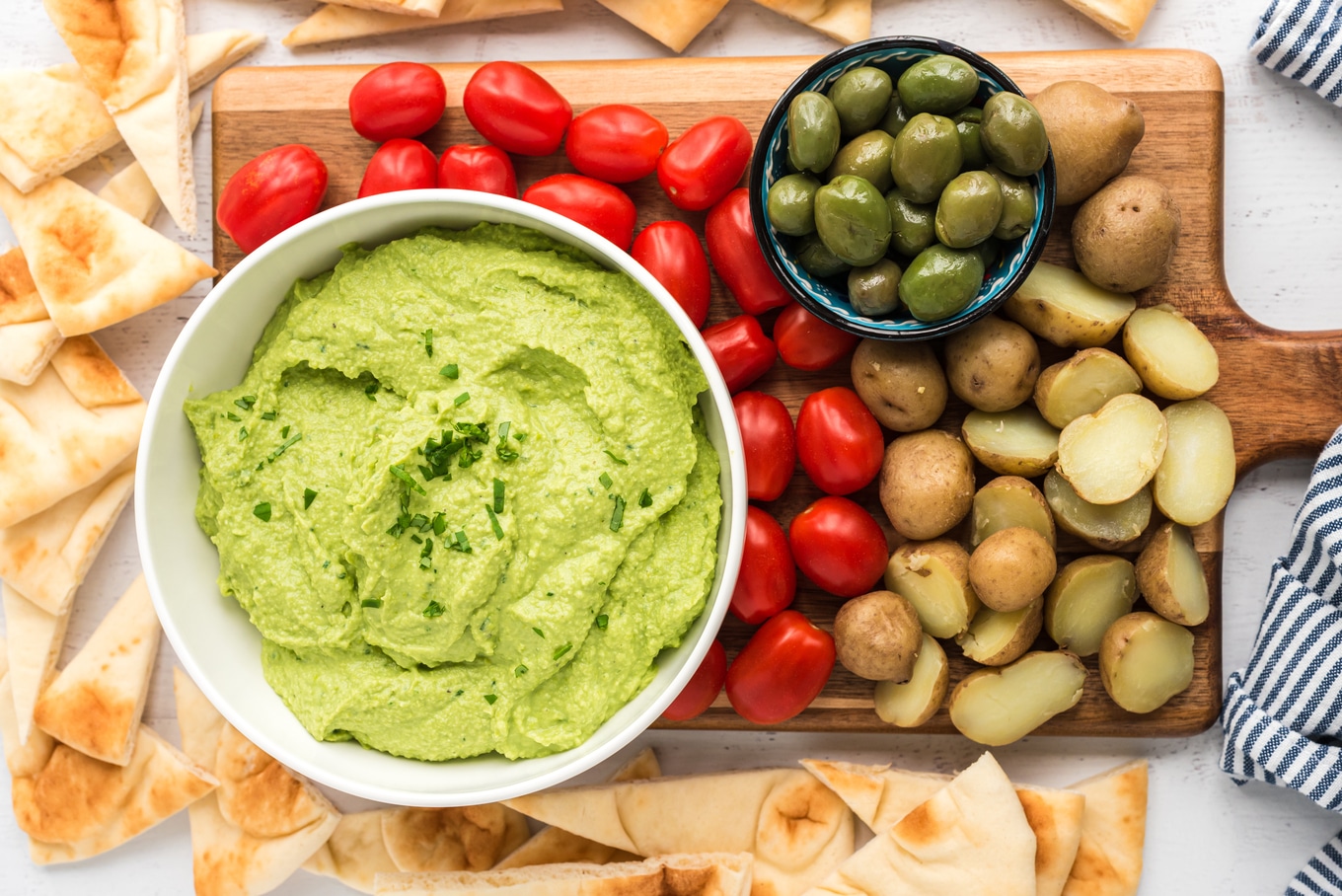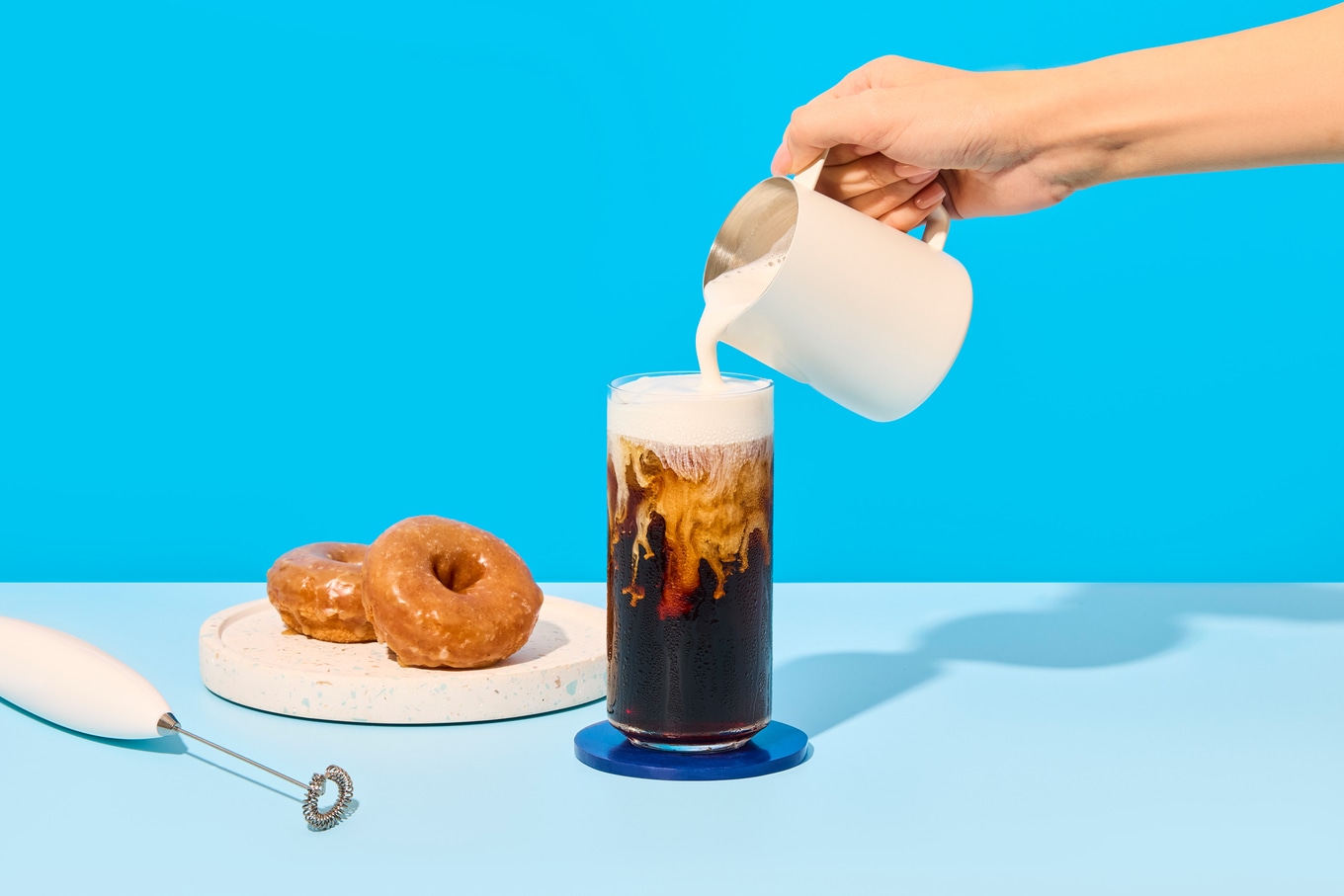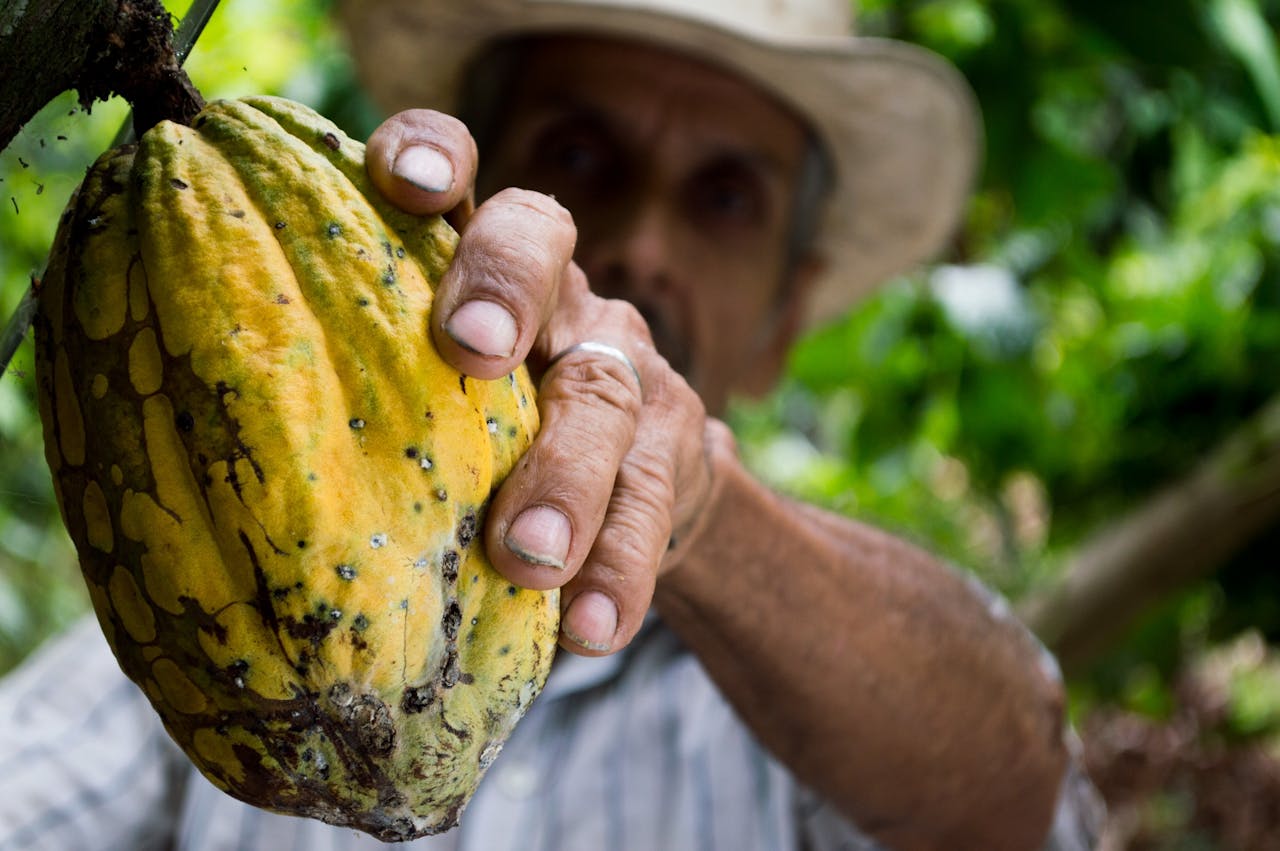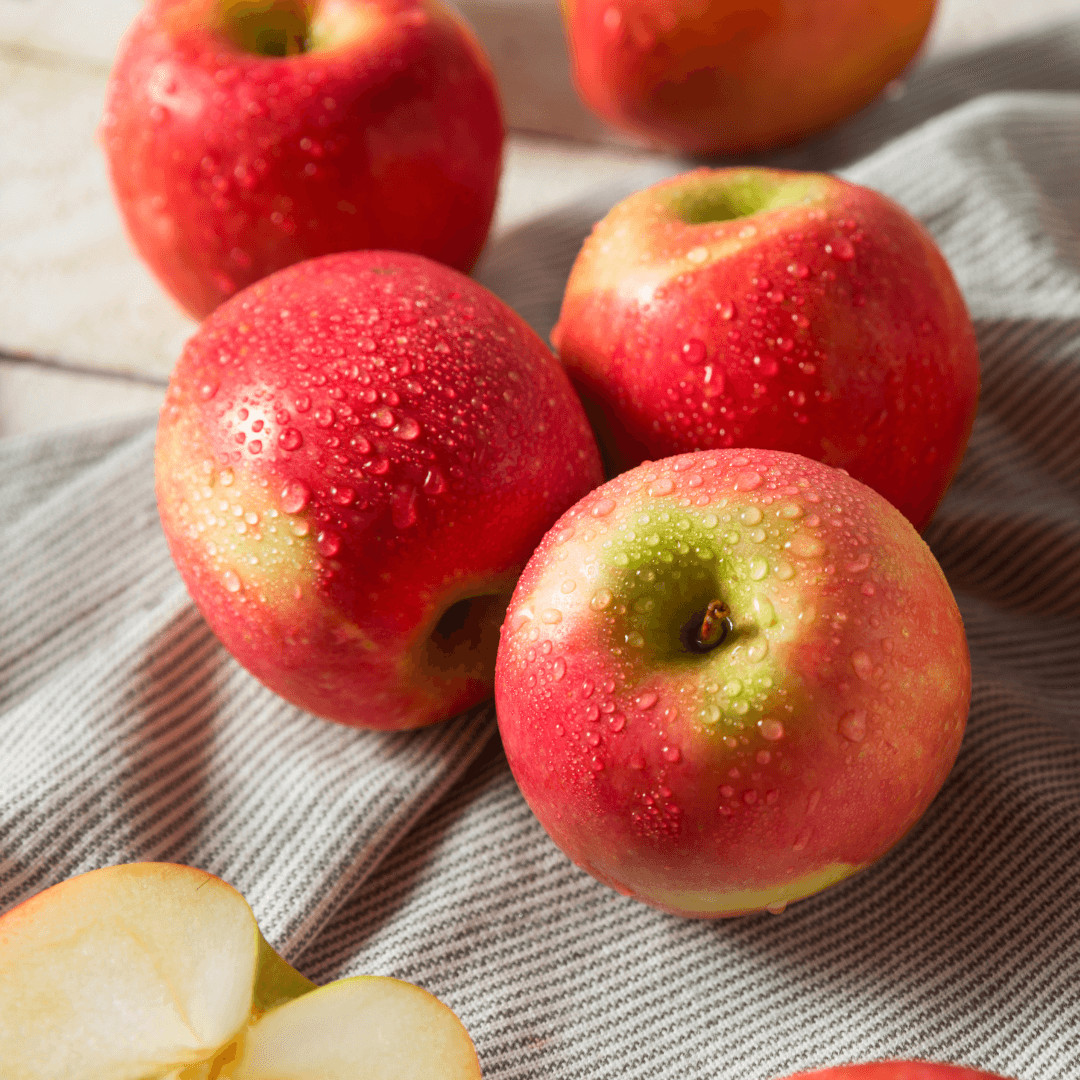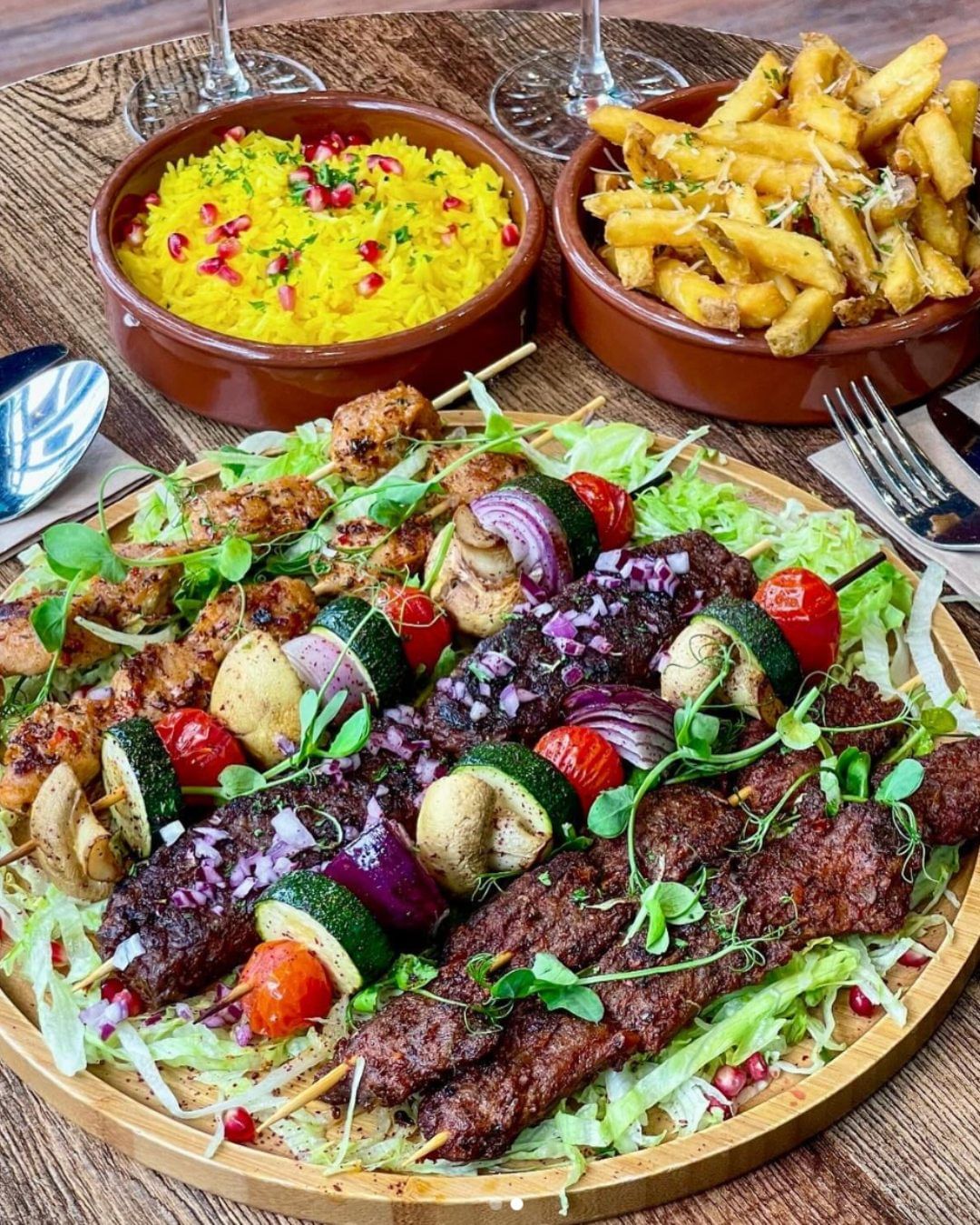Demand for eggs is on the rise. Data from Statista shows that the average American consumed around 281 eggs per person in 2023, and in 2024, this is predicted to rise to more than 284 eggs per person by the end of the year. Many like eggs because of their taste, of course, but also because of their protein content.
On average, one egg contains around seven grams of protein. That means that if you cook up two for your breakfast, you’re hitting around 14 grams of the nutrient, which is important for maintaining the health of our bones, muscles, and skin. But eating a lot of eggs does come with a downside. In fact, research shows it might even increase the risk of chronic diseases, like heart disease.
Enter: plant-based, whole foods. Research shows they’re better for heart health, are incredibly nutrient-dense, and many of them contain even more protein than eggs. Swapping out two eggs for a tofu scramble means that you could start your day with around 19 grams of protein.
Tofu isn’t alone. There are many great sources of plant-based protein that are versatile, tasty, and, research shows, beneficial for our health. Find some of the best plant-based foods with more protein than eggs below.
Karissa’s Vegan Kitchen
Table of Contents
How much protein do humans actually need?
The Western world is obsessed with protein. If you’ve recently opened a social media app, you’ve probably seen at least one post that mentioned the nutrient. TikTok, for example, is flooded with videos showing users “what 20 grams of protein looks like” or “how to add more protein to your diet.”
But actually, research shows most of us are doing quite well on the protein front. According to the Mayo Clinic Health System, most people in the US meet or exceed their protein needs, which is around 0.8 grams per kilogram of body weight. So if you weigh around 63 kilograms, that’s just over 50 grams of protein per day. If you weigh 90 kilograms, it’s around 72 grams of protein per day.
“This is especially true for males ages 19–59. The Dietary Guidelines for Americans, 2020–2025 indicate that men in that age range are exceeding their protein recommendations, especially from meat, poultry, and eggs.” —Mayo Clinic Health System
Protein is not particularly hard to obtain. It’s in an abundance of foods—including plant-based ones. “It’s not just tofu, beans, and nuts that pack the protein in a plant-based diet. Indeed, just about everything else in whole-food, plant-based diets—grains, veggies, everything except most fruit—has a protein content at or above 12 to 15 percent of total calories,” notes Matt Frazier, an ultramarathoner, in his cookbook The No Meat Athlete. “Put it all together, and you get a diet that provides you with plenty of protein—even as an athlete.”
That said, it is good to be aware of how much protein we’re consuming, especially as we age. The Nurses Health Study, which pulled together data from more than 48,000 female nurses, confirms that consistently getting enough protein is linked to healthy aging.
Are eggs a good source of protein?
Eggs do provide us with a big kick of protein. As mentioned above, eating two every morning will give you around 14 grams, while eating three will give you around 21 grams, which is a good start if you’re looking to eat around 50 grams per day. They also contain nutrients like vitamin D, calcium, iron, and vitamin B12.
However, eggs are far from perfect. They also contain significant amounts of cholesterol, which, research suggests, might increase the risk of heart disease.
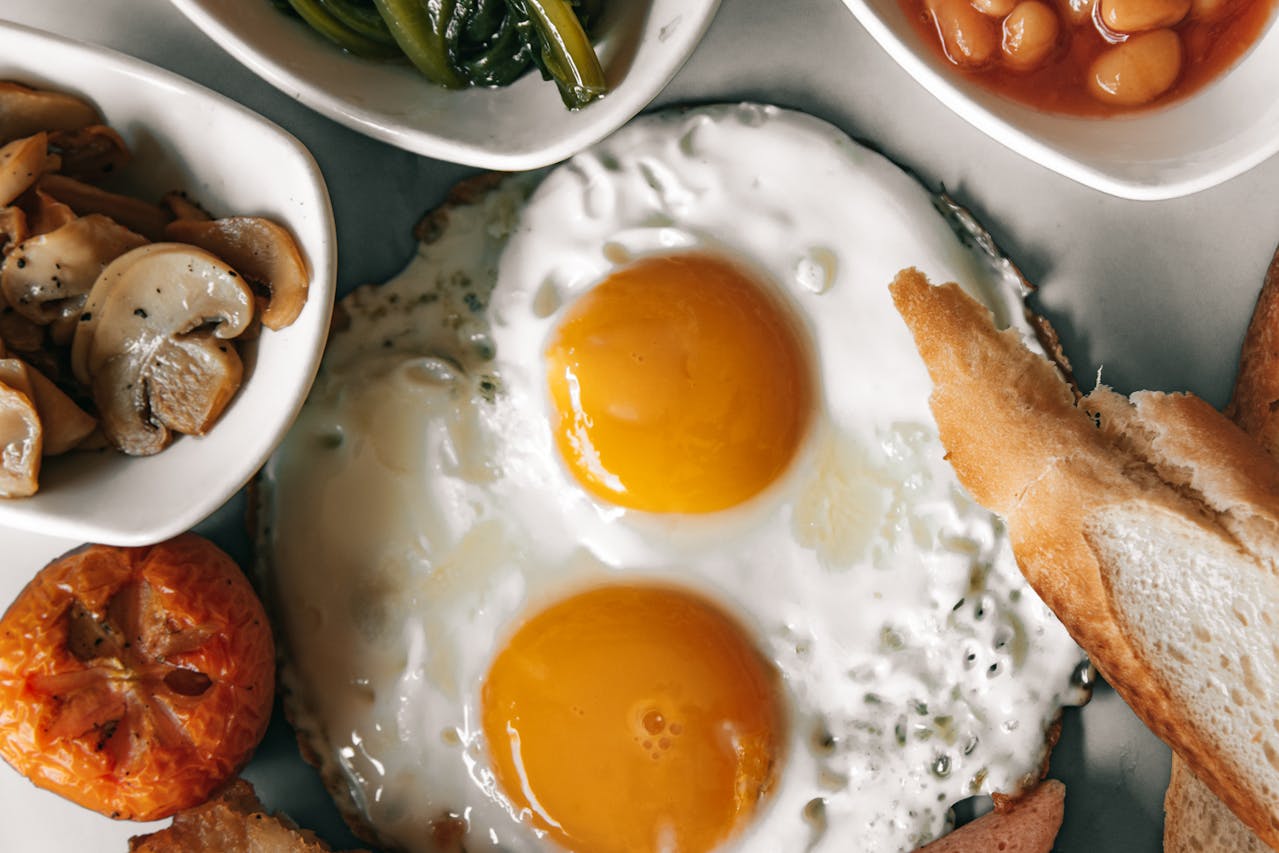 Pexels
Pexels
Until recently, the USDA recommended that American adults limit their cholesterol intake to no more than 300 milligrams per day (one egg contains around 186 milligrams). This was changed, however, when new guidelines were introduced recommending that people limit their intake of saturated fat, trans fats, and added sugars instead.
“The guideline changes are due to research showing that dietary cholesterol itself isn’t harmful and doesn’t contribute to increases in your body’s blood cholesterol levels,” explains Healthline. “Cholesterol is a natural substance that’s produced in your body and is found in animal-based foods. It’s a waxy, fatty substance that travels through your bloodstream.”
But not everyone agrees. In 2019, one study examined data from 30,000 adults and suggested that eating half an egg every day increased the risk of heart disease significantly.
“We found that, for every additional 300mg cholesterol a person consumed, regardless of the food it came from, they had a 17 percent increased risk of cardiovascular disease, and 18 percent increased risk of all-cause mortality,” Norrina Allen, one of the study’s authors told the BBC. “We also found that each half egg per day led to a 6 percent increased risk of heart disease and 8 percent increased risk of mortality.”
Egg consumption has also been linked with an increased risk of type 2 diabetes, as well as cancer. In 2021, one National Institutes of Health study suggested that eating two and a half eggs every week might increase the risk of developing prostate cancer, for example.
Plant-based, whole foods, however, offer a source of protein that is linked with a reduced risk of disease. Multiple studies have linked plant-based, whole food consumption with a decreased risk of type 2 diabetes, cancer, and, the biggest killer in the US, heart disease.
8 plant-based foods with more protein than eggs
You can find out more about the best protein-packed plant-based foods below, and we’ve also included tasty recipe inspiration, too.
1 Tempeh
Protein content: 19 grams of protein per 100 grams
Tempeh is a traditional Indonesian food made with fermented soybeans. It’s nutty, earthy, and incredibly versatile—it can be grilled or pan-fried, ground or baked, depending on your preferences. It’s also a complete protein, which means it contains all nine essential amino acids, and it’s a good source of B vitamins, fiber, and probiotics.
Try it in a recipe: Miso-Mustard Tempeh With Roasted Baby Bok Choy
2 Seitan
Protein content: 75 grams of protein per 100 grams
Without a doubt, seitan is one of the best plant-based sources of protein around. In fact, it contains even more protein than steak It’s made with wheat gluten, and it’s usually used as a plant-based meat. In the UK, the fast-food chain Temple of Seitan makes all of its vegan fried chicken with the plant-based ingredient, for example. One major downside, however, is that seitan is not suitable for those with celiac disease or gluten intolerance.
Try it in a recipe: Vegan Greek Seitan Gyros With Tzatziki Sauce
3 Chickpeas
Protein content: 19 grams of protein per 100 grams
Chickpeas are one of the most versatile plant-based proteins. They can be mashed, roasted, or seasoned and poured straight onto a salad. As well as protein, they also provide us with an abundance of vitamins, minerals, and fiber, which are essential for supporting digestive health. Chickpeas aren’t a complete protein, but if you combine them with grains like rice or quinoa you’ll get all the amino acids you need.
Try it in a recipe: Spicy Vegan Buffalo Chickpea Tacos
4 Quinoa
Protein content: eight grams of protein per cooked cup (around 185 grams)
Quinoa is so good for us that it has earned the coveted title of “superfood” in the media world, which basically means that it’s high in a lot of different nutrients. Alongside protein, it packs in fiber, B vitamins, magnesium, iron, zinc, and potassium, all of which are essential for maintaining overall health. It also contains two potent anti-inflammatory antioxidants: quercetin and kaempferol.
Try it in a recipe: Grillable Vegan Quinoa and Chickpea Burgers
5 Tofu
Protein content: eight grams of protein per 100 grams
Like tempeh, tofu is made from soybeans, which means it is a complete protein, packing in all nine amino acids. On top of this, it’s a good source of iron, as well as minerals like magnesium and phosphorus, and compounds called isoflavones. Research suggests that these isoflavones have an antioxidant and anti-inflammatory effect in the body, and may even contribute to a reduced risk of certain cancers, including breast cancer.
Try it in a recipe: Vegan Firecracker Tofu With Broccolini and Chili Garlic Oil
6 Black beans
Protein content: 15 grams of protein per cup (around 172 grams)
On top of all of that protein, black beans also contain high amounts of fiber, as well as folate, iron, magnesium, potassium, and phosphorus. Plus, they’re rich in antioxidants, like the flavonoids anthocyanins, which help protect cells from oxidative stress and reduce inflammation in the body. As a testament to their health benefits, beans are a staple in many of the world’s Blue Zones, which are areas where people tend to live longer healthier lives than those in the West.
Try it in a recipe: Vegan Black Bean-Stuffed Sweet Potatoes With Coconut Sour Cream and Guacamole
7 Edamame
Protein content: 11 grams of protein per 100 grams
Like all other products made from soy, edamame beans are a complete protein. Plus, they’re also high in fiber and rich in vitamins and minerals, including folate, vitamin K, vitamin C, iron, calcium, magnesium, and potassium. You can enjoy edamame beans in many ways, from salads to hummus, but many choose to snack on them just as they are, boiled with a little sea salt.
Try it in a recipe: Simple Vegan Avocado Edamame Hummus
8 Plant-based meats
Protein content: It depends. Beyond Burgers pack 20 grams of protein per patty, for example, while Quorn Chicken Style Pieces contain around 14 grams of protein per 100 grams.
If you’re craving the taste and texture of meat, but don’t want animal meat, then plant-based products are a good alternative. They are often very high in protein, and they’re tasty and convenient, too. Whether you’re craving steak, ribs, sausages, or meatballs, you can find out all about the different types of plant-based meat on the market here.
Try it in a recipe: Vegan Sausage and Ricotta Stuffed Shells With Vodka Sauce

